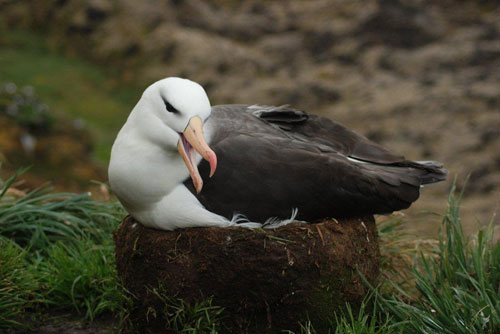The Commission for the Conservation of Antarctic Marine Living Resources (CCAMLR) was established by international convention in 1982 with the objective of conserving Antarctic marine life. CCAMLR currently has 25 Members, with a further 10 countries having acceded to the Convention.
CCAMLR practices an ecosystem-based management approach by operating the CCAMLR Ecosystem Monitoring Program (CEMP). The two aims of CEMP are to:
detect and record significant changes in critical components of the marine ecosystem within the Convention Area, to serve as a basis for the conservation of Antarctic marine living resources, and
distinguish between changes due to harvesting of commercial species and changes due to environmental variability, both physical and biological.
The programme has been fully implemented since 1987 and involves monitoring selected predator, prey and environmental indicators of ecosystem performance following a set of standard methods.
Data are collected at 15 sites around the Antarctic. Up to 14 parameters of predator performance and 10 parameters of prey and environmental performance are collected at each site. The CEMP indicator-species monitored are Adélie Pygoscelis adeliae, Chinstrap P. antarctica, Gentoo P. papua and Macaroni Eudyptes chrysolophus Penguins, Black-browed Albatross Thalassarche melanophris, Antarctic Thalassoica antarctica and Cape or Pintado Daption capense Petrels and the Antarctic Fur Seal Arctocephalus gazella.
The CEMP site for monitoring the ACAP-listed and Endangered Black-browed Albatross is Bird Island, South Georgia/Islas Georgias del Sur)*.

An incubating Black-browed Albatross. Photograph by Genevieve Jones
Reference:
Agnew, D.J. 1997. The CCAMLR Ecosystem Monitoring Programme. Antarctic Science 9: 235-242.
John Cooper, ACAP Information Officer, 11 January 2013
*A dispute exists between the Governments of Argentina and the United Kingdom of Great Britain and Northern Ireland concerning sovereignty over the Falkland Islands (Islas Malvinas), South Georgia and the South Sandwich Islands (Islas Georgias del Sur y Islas Sandwich del Sur) and the surrounding maritime areas.

 English
English  Français
Français  Español
Español